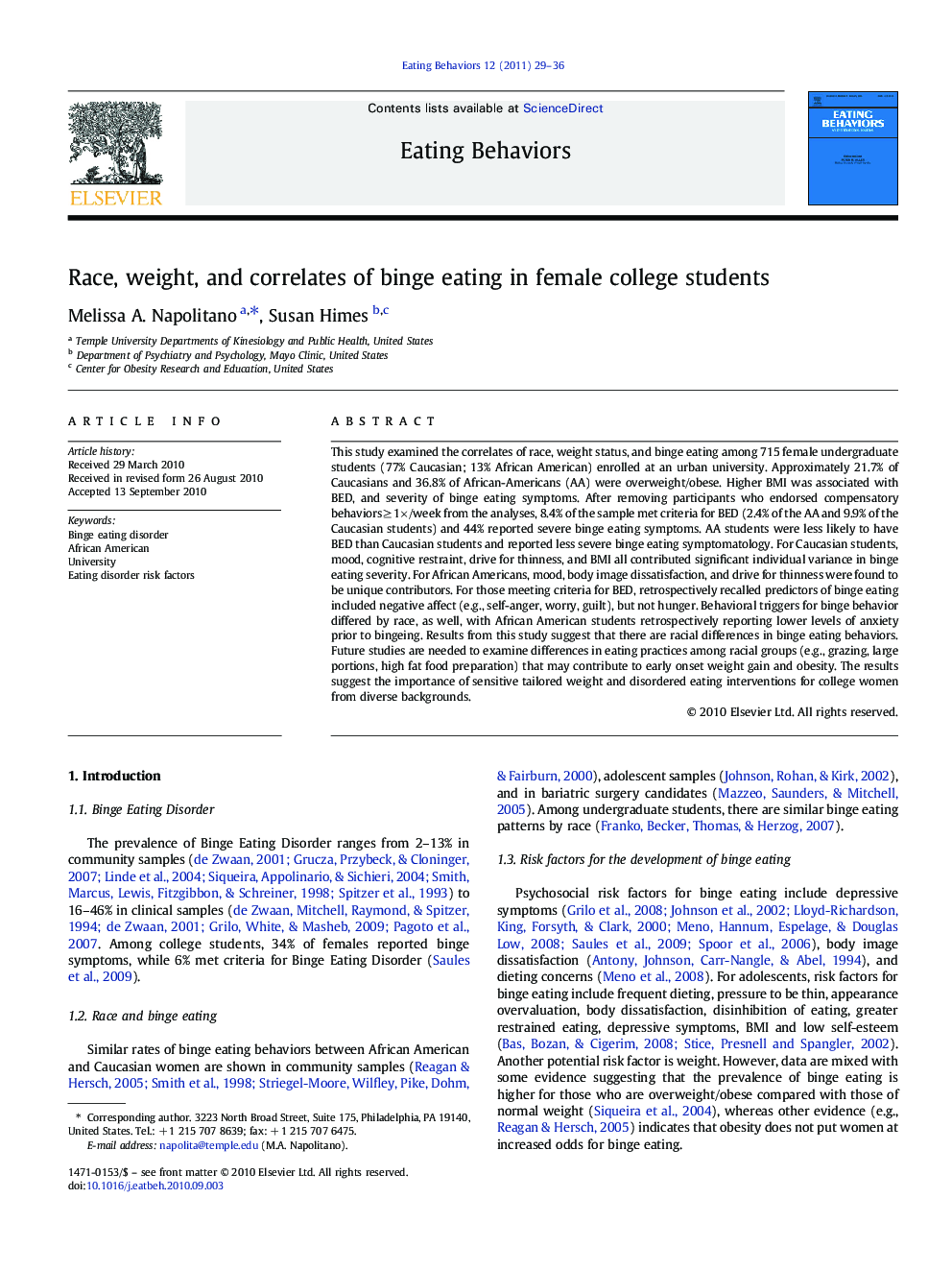| کد مقاله | کد نشریه | سال انتشار | مقاله انگلیسی | نسخه تمام متن |
|---|---|---|---|---|
| 906709 | 917017 | 2011 | 8 صفحه PDF | دانلود رایگان |

This study examined the correlates of race, weight status, and binge eating among 715 female undergraduate students (77% Caucasian; 13% African American) enrolled at an urban university. Approximately 21.7% of Caucasians and 36.8% of African-Americans (AA) were overweight/obese. Higher BMI was associated with BED, and severity of binge eating symptoms. After removing participants who endorsed compensatory behaviors ≥ 1×/week from the analyses, 8.4% of the sample met criteria for BED (2.4% of the AA and 9.9% of the Caucasian students) and 44% reported severe binge eating symptoms. AA students were less likely to have BED than Caucasian students and reported less severe binge eating symptomatology. For Caucasian students, mood, cognitive restraint, drive for thinness, and BMI all contributed significant individual variance in binge eating severity. For African Americans, mood, body image dissatisfaction, and drive for thinness were found to be unique contributors. For those meeting criteria for BED, retrospectively recalled predictors of binge eating included negative affect (e.g., self-anger, worry, guilt), but not hunger. Behavioral triggers for binge behavior differed by race, as well, with African American students retrospectively reporting lower levels of anxiety prior to bingeing. Results from this study suggest that there are racial differences in binge eating behaviors. Future studies are needed to examine differences in eating practices among racial groups (e.g., grazing, large portions, high fat food preparation) that may contribute to early onset weight gain and obesity. The results suggest the importance of sensitive tailored weight and disordered eating interventions for college women from diverse backgrounds.
Research Highlights
► Among female college students, the prevalence of Binge Eating Disorder was 8.4%, and 44% of reported severe binge eating behavior.
► African American females were less likely to meet criteria for Binge Eating Disorder than Caucasian females.
► African American females had less severe binge symptomatology than Caucasian females.
► Retrospectively recalled precursors to binge eating include negative affect (e.g., anger, anxiety, depression), but not hunger.
Journal: Eating Behaviors - Volume 12, Issue 1, January 2011, Pages 29–36